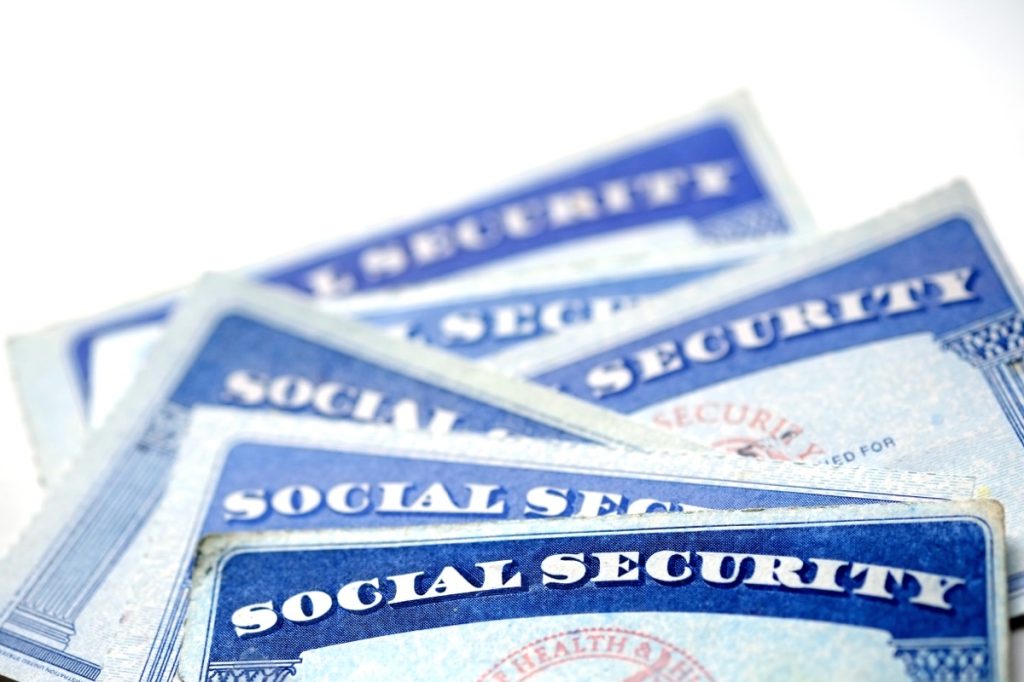I'm an Accountant and These Are My 5 Tax-Filing Warnings for Retirees
Seniors may want to keep these tips in mind before they send the IRS their information.

Out of all the organization that goes into your retirement, few things matter as much as your financial planning. Part of this includes acclimating to a new system when it comes time to file your taxes each year, even though your income situation will likely change drastically. But while you might think you're prepared for the task, experts say there are a few things seniors need to keep in mind when organizing everything. Read on for the most critical tax-filing warnings for retirees, according to accountants.
RELATED: IRS Issues New Alert on 5 Things You Must Declare on Your Taxes This Year.
1
You might get taxed on your Social Security income.

Once you reach retirement age, you can finally get your hands on the Social Security income you've been looking forward to for years. However, there is a good chance some or most of it may be taxable—especially if you still have other money coming in.
"An estimated 40 percent of people who receive Social Security income must pay federal taxes on these benefits," says Jessica Wheaton, a certified public accountant (CPA) and director of tax & accounting services at Fiske & Company. "If Social Security is your only source of income, you probably don't need to worry, but if you're fortunate enough to have other income sources that would increase your gross income, you may have to pay taxes up to 85 percent of your benefits."
RELATED: IRS Issues New Alert on 5 Major Tax Changes You Need to Know Before Filing
2
Remember to consider the consequences of moving to another state.

Many people plan on moving to warmer weather or downsizing after they leave the workforce. However, experts caution that retiring to a different state can have significant tax implications if you're unprepared come filing time.
"Some states, like Florida, have no income or estate taxes but high sales taxes, while others, like Connecticut, have high tax rates," explains Roxanne Hendrix, CPA and tax expert with JustAnswer. "Ensure you understand the tax laws of the area you relocate to to avoid unforeseen tax burdens."
RELATED: IRS Warns 20% of Taxpayers Don't Claim Major Refund Credit—Are You Eligible?
3
Remember to take your required minimum distributions.

Most people focus intently on putting enough funds away so that they can live comfortably after they stop working. But according to Hendrix, it's important to remember how to use them once you've actually left the workforce.
"The IRS requires anyone 73 or older to take the required minimum distribution (RMD) from tax-deferred retirement accounts, such as IRA and 401(k) accounts. Your account balance and expected distribution period determine the amount you must withdraw each year," Hendrix tells Best Life. "The IRS requires annual distributions so individuals can't continue to grow tax-deferred accounts indefinitely and then pass them down to heirs."
However, she cautions that if you fail to take the required distributions in a year, the tax agency will assess an excise tax of 50 percent on them. This means that someone who fails to withdraw $5,000 of their required distribution amount would pay a $2,500 penalty.
"Just be sure you stay aware of how much you need to withdraw from your accounts each year before filing because the last thing you want is to pay extra come tax season," Hendrix warns.
4
Don't always rely on DIY tax preparation.

Even if you've been the type of person to file your taxes without an accountant for most of your life, the complexity of ever-changing tax laws can make it harder to stay on top of. This is especially true for a time in your life when financial security might not be as sound as it was during your working years.
"Depending solely on do-it-yourself tax preparation without seeking professional guidance can increase the likelihood of errors and missed opportunities for tax savings," says Hendrix. "One of the best ways to avoid these mistakes is to hire a tax professional or a financial advisor specializing in retirement planning."
She points out that the IRS maintains a directory of federal tax return preparers with credentials and specific qualifications online, such as Enrolled Agents. But there are often ways you can get some assistance without even having to pay.
"While we're sure you've accumulated a lot of wisdom over the years, there is no shame in asking for a helping hand, especially when it's free!" says Wheaton. "The Tax Counseling for the Elderly (TCE) program provides free help to qualifying taxpayers, particularly those 60 years of age and older."
RELATED: Ex-IRS Worker Warns TurboTax Is "Trying to Make Your Taxes Harder."
5
Be on the lookout for scams.

Even as technology has made it easier to compile your information and file online, it's also given criminals new ways to target potential victims. And unfortunately, senior citizens are often the target of such scams, often through email and phone calls.
"The IRS estimates millions are lost to tax-related scams every year, and the scammers are becoming more sophisticated by the day," says Wheaton.
She suggests following the rule of "when in doubt, just hang up" when dealing with a suspicious call from someone claiming to be an IRS representative. Afterward, you can contact the IRS directly or get in touch with your accountant to confirm if the call was legitimate.
"Scammers tend to request personal information from you, such as filing status, your Social Security number, identity protection PIN, and other personal questions in an attempt to prepare fraudulent tax returns to claim tax refunds," she cautions. "And please note that the IRS will never email you, so you can disregard any messages claiming to be from the IRS. Stay vigilant!"
Best Life offers the most up-to-date financial information from top experts and the latest news and research, but our content is not meant to be a substitute for professional guidance. When it comes to the money you're spending, saving, or investing, always consult your financial advisor directly.





















